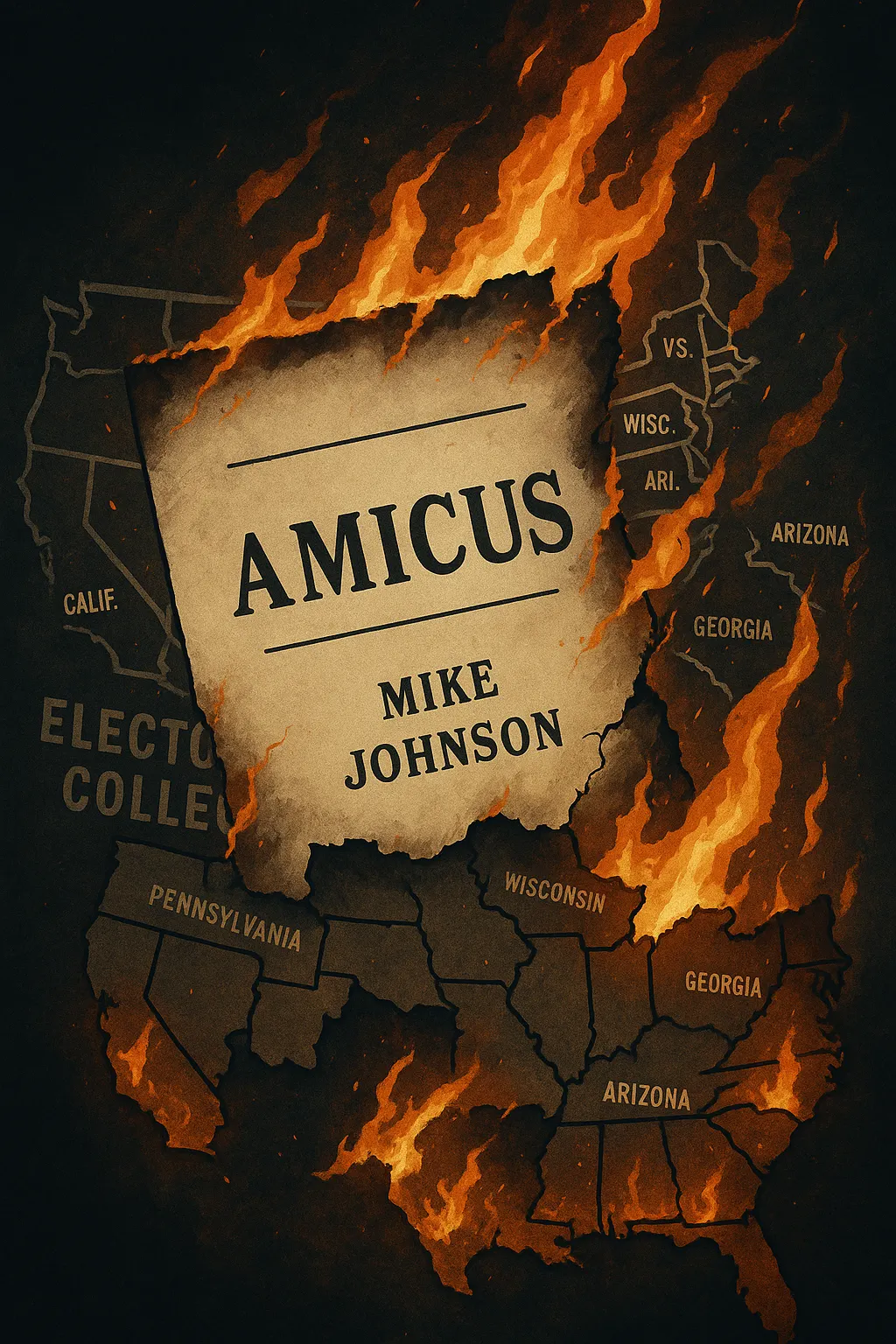Behind the Legal Coup Attempt- Part II

Mike Johnson’s transformation from a background player to a national power broker came in the wake of the 2020 presidential election. While many Trump allies took to cable news and social media to spread election conspiracies, Johnson operated with quiet precision.
He was the chief architect of the amicus brief filed by congressional Republicans in support of Texas’s lawsuit to invalidate the election results in Georgia, Michigan, Pennsylvania, and Wisconsin.
🔵 The case, Texas v. Pennsylvania, was widely condemned by legal scholars as meritless and dangerous. But that didn’t matter to Johnson. He secured the signatures of over 120 GOP House members, giving the appearance of institutional credibility to what many described as a legal coup. The brief claimed that the defendant states had violated the Electors Clause, and sought to throw out millions of legally cast votes.
🔵 Johnson defended his actions as rooted in constitutionalism and divine truth, not partisanship. He couched the move in legal jargon, but the message was clear: he was willing to use the courts—not to uphold democracy, but to manipulate its rules in favor of his theological and political allegiances.
📢 Final Closing Line for Part II:
This wasn’t a momentary lapse in judgment. It was a clear strategy: normalize the use of legal instruments to overturn democratic outcomes. Johnson gave MAGA world a framework—a bureaucratic insurrection wrapped in legalese. The media spotlighted the loudest voices, but it was Johnson’s methodical approach that carried the biggest long-term risk.
📢 Next up: The Smiling Theocrat Inside the Quiet Revolution Reshaping American Democracy- Part III: The Pulpit and the Gavel: For Mike Johnson, there is no meaningful distinction between religious conviction and civic governance. 🚀
